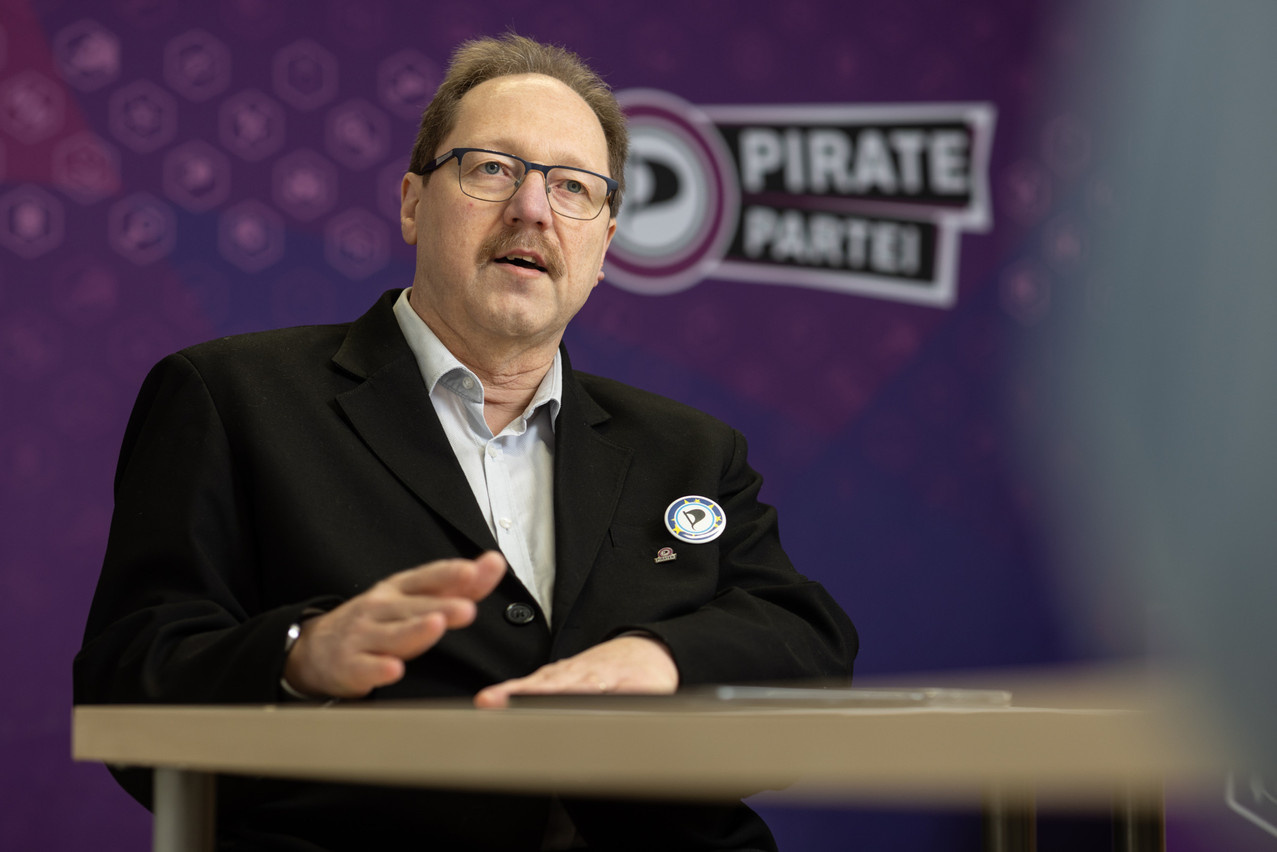Raymond Remakel (59) has a long life of activism behind him. The retired accountant, who uses a wheelchair, has spent the last 30 years campaigning as a volunteer for the disabled, the dependent elderly and people in need. Having stood as a candidate in the parliamentary elections already, he is now on the list for the European elections. To his “great surprise” he was offered the top spot on the list, where he is joined by (29) and (42), Lucy Agostini (19), Nadine Do Carmo Freitas (33) and Vincenzo Turcarelli (57).
The list doesn’t include any of the party’s heavyweights, a deliberate choice. “We asked our three elected MPs if they wanted to get involved in the campaign,” Remakel explained. “They said no, pointing out that voters had entrusted them with a mandate that they had an obligation to honour. To remain consistent, we have chosen those who are available to take on their mandate. We see this as a strong differentiating factor.”
Looking right and left
The Pirate party presents itself as a pro-European party deeply rooted in “European values,” that wants to position itself at the centre of the political spectrum. “We are a party of the centre, open to ideas from both the right and the left, as long as they are good ones,” says Remakel. In a parliament like the European Parliament, where the modus operandi is not one of majority-opposition combat, but of consensus-building, he sees this as the ideal positioning. “We have 27 countries which, faced with the same problems, do not all have the same vision or the same interests. The aim is to come up with a consolidated text that takes all these facets into account. The system is more complicated and requires more in-depth work. That’s why it’s important to have members from the centre who are open-minded enough to look left and right.”
What message does he want to get across to voters? “Every vote that goes to the Pirates will be a useful vote for Europe and for Luxembourg.”
Transparency
The main points of Remakel’s programme include data protection and the right of citizens to decide. “We are in favour of a participatory model where power comes from below. We need to ensure that citizens are involved and participate in the decision-making process from the outset. That’s why we want to encourage the possibility of referendums--not just public consultations, the results of which are often forgotten, as was the case with the public consultation launched by the [European] Commission in 2018 on the issue of summer time--but real referendums with results that are binding for politicians.”
For Remakel, it is better to give citizens a choice than to try to impose on them how they should live. “If we had acted in this way on the question of renewable energies, the energy transition would be much further advanced,” he says as an example.
The Pirates are also campaigning for greater transparency in the European decision-making process. “We successfully went to court to force (DP), prime minister at the time, to reveal the details of the concession contract with RTL. We will also be doing this at European level to force Ursula von der Leyen to reveal to parliament what went on behind the scenes in the contracts to buy covid-19 vaccines. We would also like to obtain the minutes of the Coreper meetings when the representatives of the states are unable to reach agreements.”
This article in Paperjam. It has been translated and edited for Delano.
